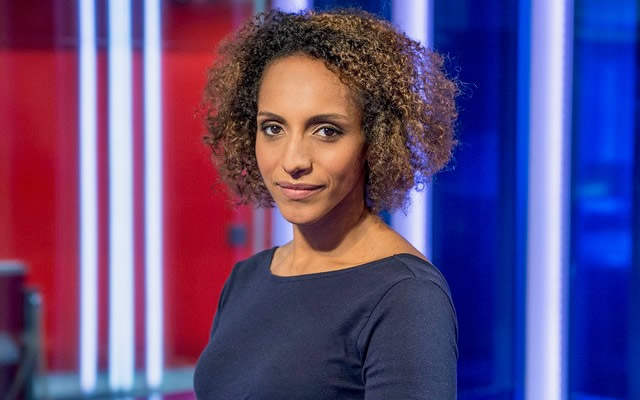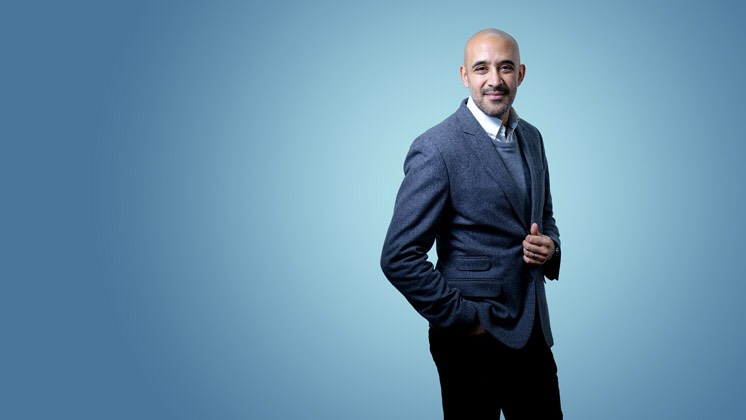Belonging and solidarity: The legacy and impact of The Voice on UK Black Journalism

“THERE IS no way to describe the confidence that comes from feeling a sense of belonging and solidarity in a place of work.”
The reality is that I may not have got there at all, were it not for my early experience of incubation at The Voice
Afua Hirsch
Writing in Representology, a journal dedicated to research and best-practice perspectives on how to make the media more representative of all sections of society, Afua Hirsch, writer, broadcaster and former barrister, reflected candidly about her time at the Voice Newspaper, where she cut her teeth as an aspiring journalist.
Touching on the feeling of being in an environment that enabled her to ‘celebrate being black.’ and the sense of belonging, Hirsch identified Britain’s only Black Newspaper as a ‘nurturing space.”
“I was a Black teenage girl, writing about Black teenage girls. Before there was a language for ‘For us, by us’, The Voice was a crucial part of the media landscape in Britain that was doing just that.
“I went on to write about racism in football, anorexia in the Black community, the exclusion of pregnant schoolgirls, and the emerging culture of British hip hop,” Hirsch wrote.
“Would mainstream media outlets have covered those stories at the time? If so, would they have centred on the Black experience or, instead, moulded it to fit a white gaze?
“Would their journalistic instincts, the clear call of public interest, have extended to include not just racism, systemic unfairness, but also – and these are perhaps the early works I’m most proud of – features about cultural innovation that are simply allowed to radiate Black joy?
“The reality is that I may not have got there at all, were it not for my early experience of incubation at The Voice.
“There is no way to describe the confidence that comes from feeling a sense of belonging and solidarity in a place of work.”
In a recent study by Reuters Institute , responses showed that ‘improving ethnic diversity in newsrooms is highlighted as the most pressing diversity priority’.
Those interested in the outcome of that study may also glean further insight from the experiences of people like Hirsch who have worked in a multitude of organisations experiencing the same negative phenomena of being the only ‘black person’ over and over.
Sharing perspective on her own working life narrative once she’d left the Voice Hirsch wrote: “When I began writing for The Voice, the number of Black journalists working on national broadsheets and as TV broadcasters was negligible.
“Other than the grandees of Black British media – Trevor Phillips and Moira Stewart, and the crucial work of Darcus Howe – the idea of Black people reporting, investigating and presenting news and current affairs was a completely fantastical one to me.”
She added: “Here was a newsroom that was fully staffed, owned and executed by Black professionals.
“From the editor to the secretary, the reporters and the photographers, it was an assembly of people who shared a sense of community, cultural heritage and discourse – an intellectual curiosity about the Black experience and about how to tell those stories.
“As is so often the case, the stories of important Black journalists who had been operating throughout the twentieth century – including Una Marson, Barbarah Blake Hannah – were invisible and inaccessible to me.
“And yet here was a newsroom that was fully staffed, owned and executed by Black professionals. From the editor to the secretary, the reporters and the photographers, it was an assembly of people who shared a sense of community, cultural heritage and discourse – an intellectual curiosity about the Black experience and about how to tell those stories.”
“It was only later, in newsrooms where I was the visible ‘other’ as one of few, or where there were no other Black journalists, that I came to appreciate how nurturing a space that was.
“Older, more experienced journalists took an interest in nurturing my enthusiasm for writing and reporting.
“A positive reason for celebrating a Black press – as well as all the other media outlets that speak specifically and directly to minority communities – is that it creates spaces in which we are not minorities.
“This is something I have come to value more since my time at The Voice, more than two decades ago.
“As political and media narratives have become more polarized and polarizing, my role has often keen to serve as the token Black person in a discussion or debate, in which I’m required to justify both my legitimacy as a contributor, and the idea that racism exists.”
Speaking to The Voice about the importance of Representology, Editor K Biswas said: “It’s brilliant that such stellar figures in Black British public life are writing about their experiences for the journal.
“Our research is making waves, igniting important conversations about race in Britain. Issue Two features pioneering black academics writing on their work for BBC television and radio, and the importance of capturing the struggles of people of colour and equal rights campaigners who blazed the trail for the rest of us.
“All contributors understand the need for a radical overhaul in media diversity in Britain”.
Representology’s second issue is out today, featuring sterling contributions from leading academics including Sir Lenny Henry, Amma Asante, Kurt Barling, Chi Thai, Adrian Lester, Siobhán McGuirk, Selina Nwulu and Ciaran Thapar.

Marcus Ryder MBE, who sits on the editorial board on Representology says: “For too long the debate around media diversity has ignored the legacy of the Black press in general and The Voice in particular. This is a brilliant start by Afua Hirsch to set the record straight.
“The Voice has consistently played an invaluable role in producing both great journalism and great journalists. Afua Hirsch’s piece is an important contribution to making sure the Voice’s role in British media is recognised. It is hard to name a great Black British journalist that has not benefited from their time at the Voice”
“The purpose of the Sir Lenny Henry Centre for Media Diversity to explore the policies that increase media diversity. Afua puts forward a convincing argument that supporting the Voice and independent Black media is an effective way of doing this.”
You can read the full article here.
June Sarpong to launch publishing platform for underrepresented authors
Source link
